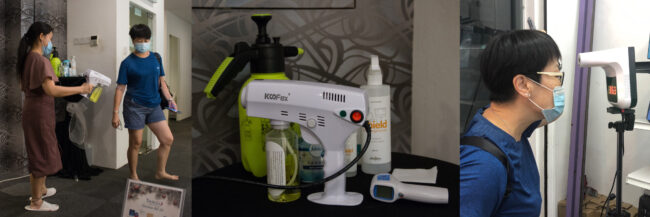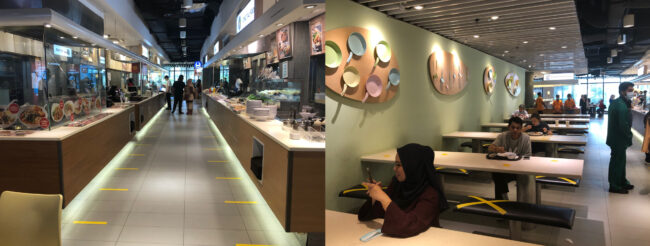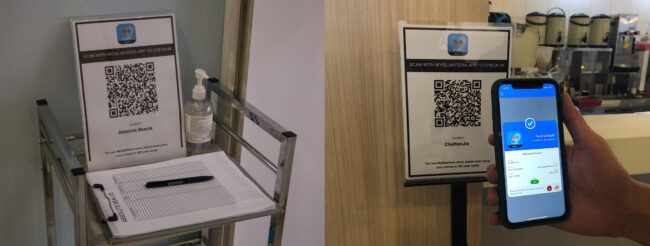Malaysia handles COVID-19 pandemic
The Vista’s Amanda Siew traveled back to her home country, Malaysia, earlier in April when UCO transitioned to fully online classes due to the COVID-19 pandemic. Siew is still in Malaysia and photographed the different government-implemented preventative measures and standard operating procedures against the spread of COVID-19.
Malaysia has reported a total of 10,769 confirmed coronavirus cases since its first case in January 2020. The country also has 9,785 total recovered COVID-19 patients and 133 total deaths.
The United States has reported over 6.7 million cases with over 199 thousand deaths since its first case in January this year, too.

To fight the spread of COVID-19, the Malaysian government implemented several nationwide lockdown procedures this year, with the first movement control order being enforced March 18.
Malaysia’s borders were closed and no one was allowed to leave or enter the country. Everyone, except for those who worked in essential services, was also ordered to stay at home. These restrictions were eventually lifted and modified following the decrease in local COVID-19 infections, allowing several business sectors to resume under strict regulations.
On June 10, the country adopted the Recovery Movement Control Order making most activities – sports, dining out, social gatherings – allowed to continue with temperature screening, contact tracing, regular sanitation and physical distancing procedures in place. It expires on Dec. 31.

All establishments in Malaysia have some form of sanitizer readily available at the entrance. All establishments also require patrons to check their body temperature before entrance either through handheld or automatic means. Those with abnormal temperatures will be turned away.
Most businesses are also allowed to operate at full capacity only if following similar standard operating procedures. Additionally, the government has enforced a midnight curfew for most business/premises in the country and a 2 a.m. curfew for eateries.

Face masks were also made mandatory starting Aug. 1 at all public places. Unlike the United States, a nationwide fine of one thousand Malaysian ringgit (about $240) will be imposed for those who do not follow the enforced rules.
The Malaysian government created the free MySejahtera app in April to track COVID-19 infections. Its main use is for contact tracing where users will scan a QR code provided at an establishment to self-register their contact details and risk level. The app also informs users of any positive COVID-19 cases in their area.

In contrast, more than half of Americans are either unable or will not use a similar app created by Google and Apple to track COVID-19 infections, according to a poll by the Washington Post and the University of Maryland.
Most Malaysian colleges and universities as well as schools at the elementary, middle and high level have been allowed to reopen with standard operating procedures set by Malaysia’s Health Ministry and National Security Council.
However, many institutes have independently decided to transition to or incorporate virtual learning until the end of the year.
There are other preventative measures as well, many private and public lifts in Malaysia will be sectioned off as above to ensure physical distancing. When the pandemic started, in most lifts a plastic sheet was added to cover the buttons to make it easier for periodical sanitization.

The country’s borders are closed to all foreign nationals, including those from the United States, until further notice. Leaving or entering the country for social visits or tourism purposes is not allowed.
Those who wish to leave for other reasons may be required to seek approval from the government. Students who are just starting or continuing their studies abroad are not affected.
Any passengers arriving in Malaysia must undergo a 14-day mandatory quarantine at a designated quarantine center upon arrival at the Kuala Lumpur International Airport. Costs for quarantine will be covered by the passenger.
The United States does not have a countrywide mandatory quarantine rule but at least 20 states have some form of self-quarantine requirement or recommendation. Oklahoma has no legal requirement for self-quarantine.

